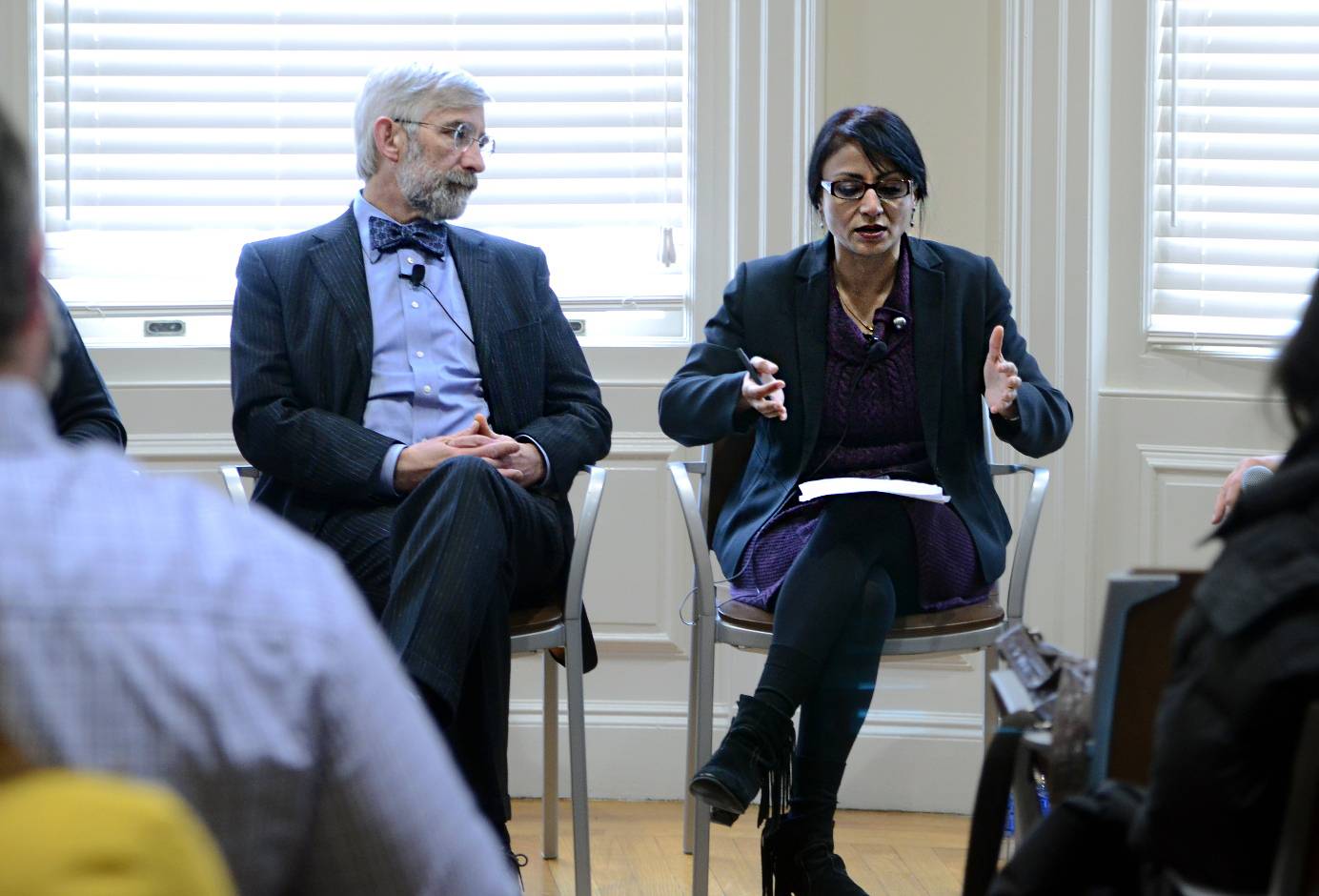Leaders of the Boston University community spoke about the benefits and challenges of practice-based teaching and student interaction in Boston for the Initiative on Cities’ Urban Seminar Series titled “Teaching the City.”
Panelists incorporated the city of Boston into their courses and practices and encouraged students to get out of the classroom and immerse themselves in city activity.
“Being a part of the city is a very big part of Boston University,” said panel member Dennis Carlberg, BU’s sustainability director at Sustainability@BU.
About 30 BU professors and alumni attended the seminar at 75 Bay State Road.
Panelist Daniel Bluestone, director of preservation studies at BU, said getting out of the classroom and into the city is a powerful experience.
“Getting out of the classroom and into the city, you actually get more abilities to learn,” he said. “It makes you wonder why anyone is still in the classroom … When you’re learning from a city, in a city, and going outside of the classroom, your sensory system is working … in a way it doesn’t when you’re sitting in a classroom, or even virtually when you’re learning on a screen.”
Madhu Dutta-Koehler, another panelist and program coordinator for City Planning and Urban Affairs in the Metropolitan College, said it’s important to immerse one’s self when teaching about the city.
“You have to be more than a teacher. You have to be a project manager,” she said. “You have to inspire and keep the momentum going. Right from the beginning, you have to really organize the course well. You have to be pretty savvy if you plan on navigating all of the political instructions in the city.”
Jacey Greece, a clinical professor in the School of Public Health, said “it’s much more rewarding” to partner students with a client during the semester in her course.
James Pasto, a panelist and senior lecturer in the Arts and Sciences Writing Program in the College of Arts and Sciences, said what is happening in Boston presents “practical problems” that students may have to deal with.
“To mobilize the resources BU has, and the faculty and the students [and] to bring the two together a lot of coordination is needed because there are a lot of things going on and this can help bring them all together. We can learn from each other,” Pasto said after the event.
Several attendees said integrative teaching techniques are a good way to build a connection between the city and the campus.
David Carballo, a professor in the College of Arts and Sciences and the Frederick S. Pardee School of Global Studies, said he tries to immerse his students in the city to teach them about Latin American culture in Boston.
“Sort of understanding the historical context and development of the city and the different areas … many Latino communities don’t see Boston as a very Latin city, and it certainly isn’t compared to a place like Miami,” he said. “There actually are pockets and neighborhoods of Latino communities.”
Anthony Janetos, director of the Frederick S. Pardee Center for the Longer-Range Future, said he found the panel thought provoking.
“It had lots of insight into how different faculty teach about the city and use the city in their teaching,” he said. “I came largely to learn what people are doing and how they are thinking about this challenge, about educating students on the place where they live.”
Marta Marello, a project manager at the Pardee center, said she attended the seminar to hear the professors’ thoughts on fieldwork in the city and how it can help educate students.
“My takeaway is that there’s so much room for opportunities, not just for short-term projects, but long-term projects, especially those that span across disciplines,” she said. “That’s good to know … The reality of campus is it’s just not Boston. It’s one small percentage … It’s valuable for students to get out and explore.”























































































































